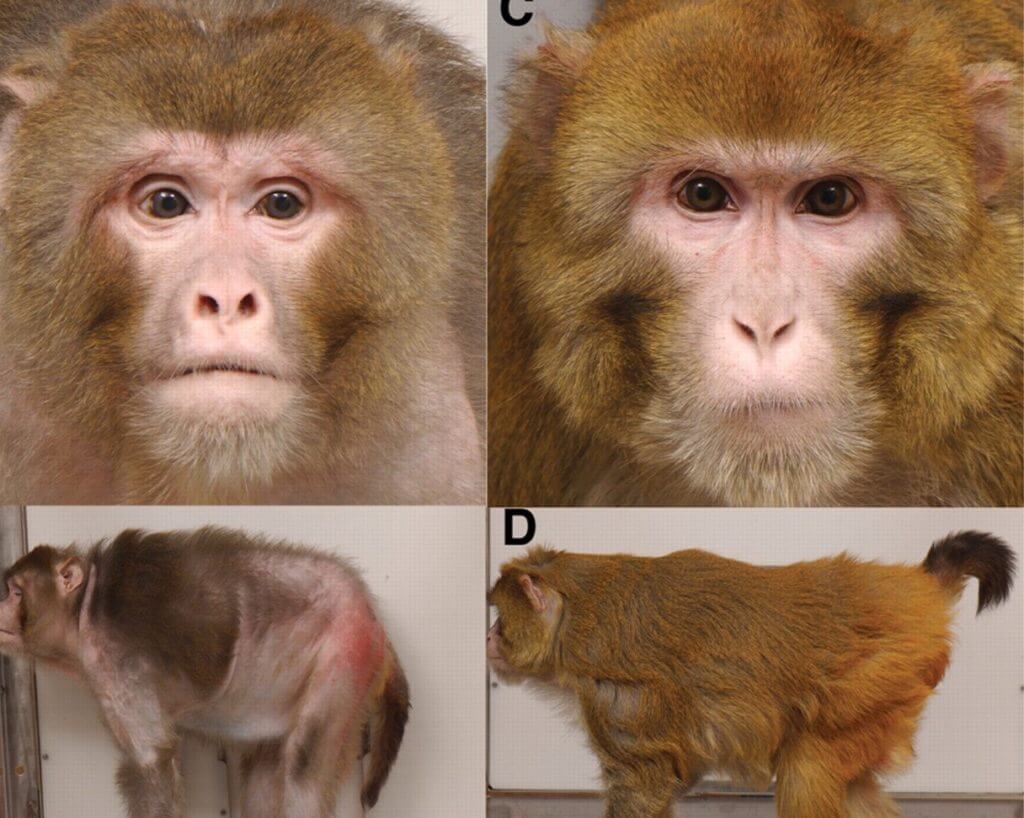Researchers worldwide are pursuing various ideas [to enhance the length and quality of our lives], but for Julie Mattison from the National Institute on Ageing (NIA) in the United States, the answer is a simple change in diet. [She and her colleagues] believe that the key to a better old age may be to reduce the amount of food on our plates, via an approach called “calorie restriction”. This diet goes further than cutting back on fatty foods from time-to-time; it’s about making gradual and careful reductions in portion size permanently.
[I]n the late 1980s, two independent long-term trials…were set up to study calorie restriction and ageing in Rhesus monkeys…Fed with specially made biscuits, the diets of the 76 monkeys at the University of Wisconsin and the 121 at NIA are tailored to their age, weight, and natural appetite…It’s just that half of the monkeys, the calorie restricted (or CR) group, eat 30% less.
Not only did their CR monkeys look remarkably younger…than monkeys that were fed a standard diet, they were healthier on the inside too, free from pathology. Cancers…were reduced by over 50%.
[Read the full study here]
The GLP aggregated and excerpted this blog/article to reflect the diversity of news, opinion, and analysis. Read full, original post: The secret to a long and healthy life? Eat less































